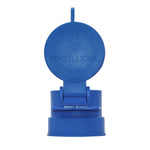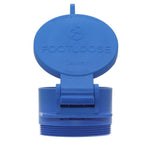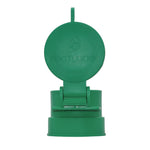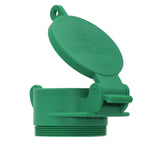You have no items in your shopping cart.
Water. Covering 71% of the Earth, this fundamental natural resource often seems limitless. Shaping our planet for millennia, water is the thread that has connected all life on earth since its inception. Agriculture, industry, civilization—everything depends on clean, readily available sources of water to grow and thrive.
Because 96.5% of the planet’s water is contained within the oceans, it’s mostly too high in salinity to be of use without prohibitively expensive desalinization, which relies heavily on the use of fossil fuels. A significant portion of the rest is locked within the atmosphere, glaciers, and ice sheets. This makes protecting our ground and surface waters a vital component of planning for our future as a species.
Conserve Water to Conserve Our Future
Given the limited nature of clean, fresh, readily accessible water, it is vital that each individual does their part to conserve it. Below are a few reasons why this is critical to humanity's future.
1) Our Health and Daily Activities Rely on Water
From bathing to cooking, water usage impacts nearly every “faucet” of our daily lives. Water is necessary to promote good hygiene and, therefore, prevent the spread of disease and infection. Diseases such as typhoid dysfunction, cholera, and dysentery were common before the introduction of water treatment practices within our society. Without clean water, disease prevention would be virtually impossible.
Even seemingly trivial usages such as watering our lawns, filling our pools, and washing our cars have an impact on our contentment that cannot be measured. In the average household, less than 20% of the water used is consumed, while the rest is used for washing machines, showers, toilets, and leaks.
2) Food Production Consumes Water
Agriculture, ranching, and food production rely heavily on clean and readily available sources of freshwater for their operation. Irrigation for agriculture consumes roughly 70% of the world’s usable freshwater supply. A lack of clean water available for crop production and ranching will ultimately lead to food shortages, famine, and starvation.
Several best practices for promoting conservation have been designed and are beginning to see implementation within the farming industry. Drip irrigation is a practice in which water is delivered directly to the plant’s root system, reducing evaporation losses—one of the key ways in which water is lost. Irrigation scheduling, such as irrigating at night to reduce evaporation and reducing man-made irrigation during the wet seasons, is also a vital component of conservation.
Other practices, such as planting drought-tolerant crops, rainwater capture and storage, and conservation tillage are being implemented as well. Some of these ideas can even be put into practice in home gardens, meaning each individual can do their part.

3) Water Provides Shelter to Wildlife
Wildlife and water are fundamentally linked. Oceans, streams, and rivers are a vast resource that provides food and medicine to humanity. We depend on the Earth and our wild neighbors for our survival, and we are and will forever be inextricably linked.
Freshwater contaminated through sedimentation and pollution negatively impacts fishing and recreation. Streambeds and wetlands serve as nurseries for multiple lifeforms that are suffocated when sediment deposits from construction and human activities are left on their surfaces. Drought and overuse by human populations reduce the amount of water available for wildlife consumption, leading to vegetation loss and the death of many species.
4) Save Blue to Save Green
Water treatment can be surprisingly expensive. Municipalities often pass this cost onto the consumer, usually with tiered pricing systems that penalize heavy users. There are several steps that you can implement to save water in your home. Practices such as limiting water use during showers or dental hygiene, gray water recycling, and installing low-flow fixtures and toilets have proven to be effective at minimizing usage and expenses.
5) Conserving Water Conserves Energy
As discussed above, water treatment is an expensive process that uses vast amounts of energy. Water heating, wastewater treatment, and desalinization use fossil fuels to achieve their ends. Conserving water through implementing conservation practices in the home, on the farm, or in the office will save energy and reduce our carbon footprint.
6) H2O Is a Finite Resource
Because 71% of the Earth is covered in water, it may seem like a vast and limitless resource, there for the taking. It isn’t. As noted above, 96.5% of this water is saltwater and is, therefore, practically useless to humanity without prohibitively expensive desalinization. Of the 3.5% of the Earth's surface that is covered by freshwater, only 0.5% is available for drinking and agriculture. When this 0.5% is reduced through contamination, it can place a squeeze on the amount available for consumption.
The United Nations’ World Development Reports state that by 2050, over 6 billion people will face water scarcity issues due to increased demand, water pollution, and reduction of available resources. This represents over 85% of our population.
7) Reduce Drought and Water Shortages
Fifty-four percent of the U.S. population live or work in cities with vulnerable water supplies. With the impending scarcity forecasted by the United Nations, implementing water conservation practices will help prevent and reduce the impact of droughts and shortages moving forward. Reducing demand and saving water are vital.
How to Do Your Part
Reducing your water footprint, or the impact your household has on our aquatic resources, is key to conservation. You can view your current usage and find helpful ways to save through this easy-to-use online water calculator.

Here’s how you can conserve water in your home:
- Turn off the faucet during dishwashing and hygiene activities.
- Install modern low-flow faucets and toilets without noticeably reducing water pressure.
- Insulate pipes to reduce time spent waiting for hot water to arrive.
- Promptly repair any leaks in and around your home.
- Only run a full load of laundry or dishes and use the energy saver mode.
- Plant native, drought-tolerant plants and trees.
- Install rain barrels or reuse gray water for irrigation.
- Use a drip irrigation system and mulch to reduce evaporation.
- Water lawns and flowers using a timer during the early morning to avoid overwatering.
Water conservation is key to the future of humanity, wildlife, and our planet. To learn more, please visit one of the several resources available online, including the EPA and the CDC. You can do your part!









